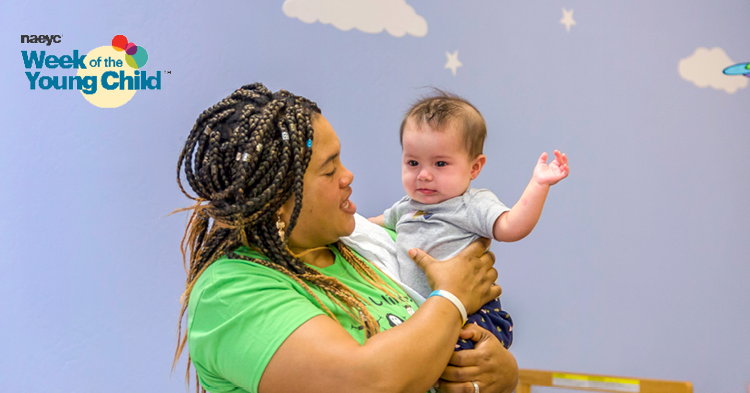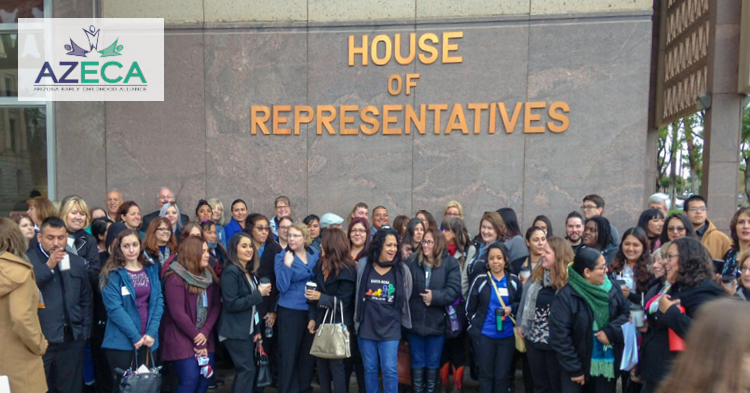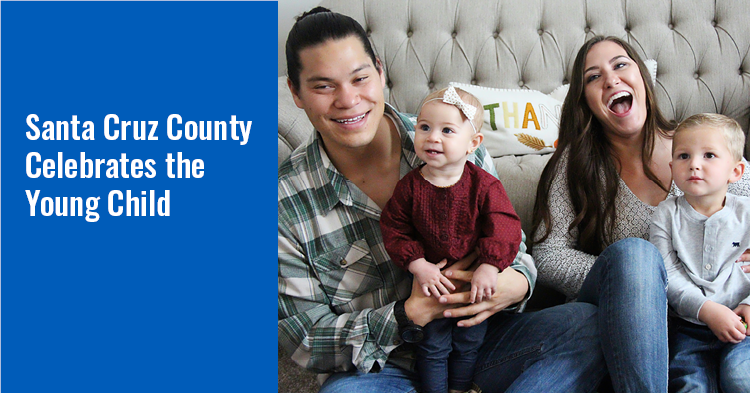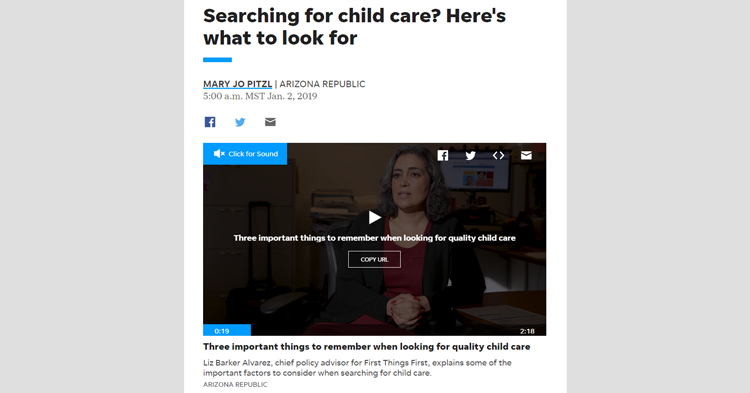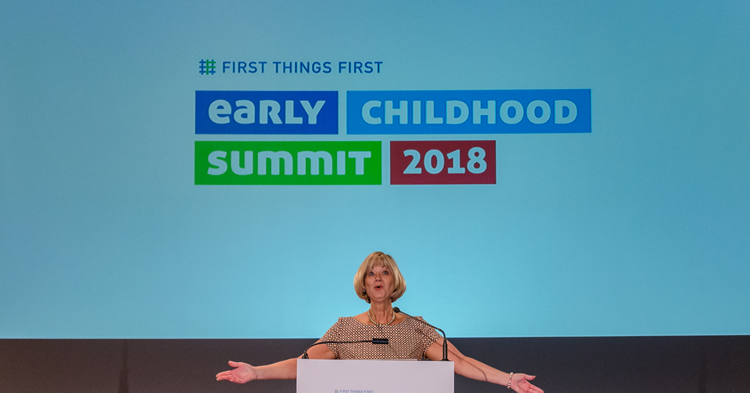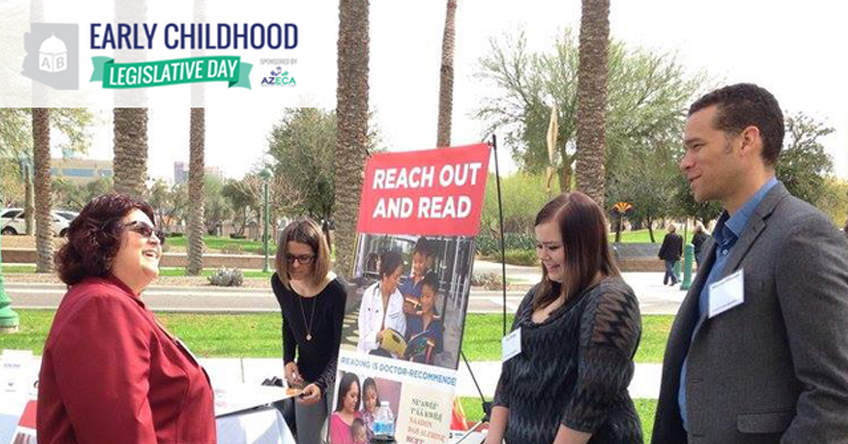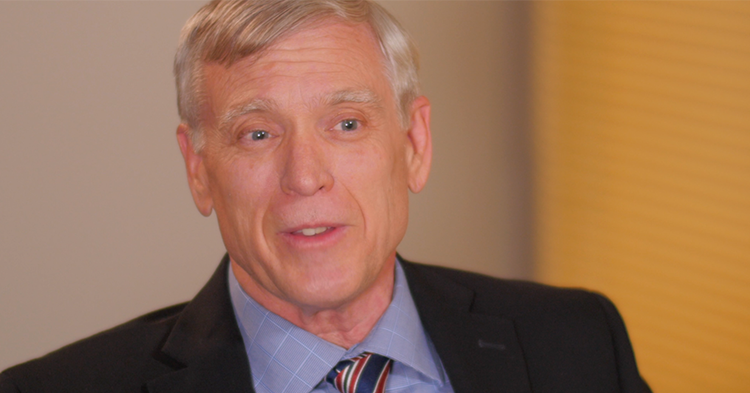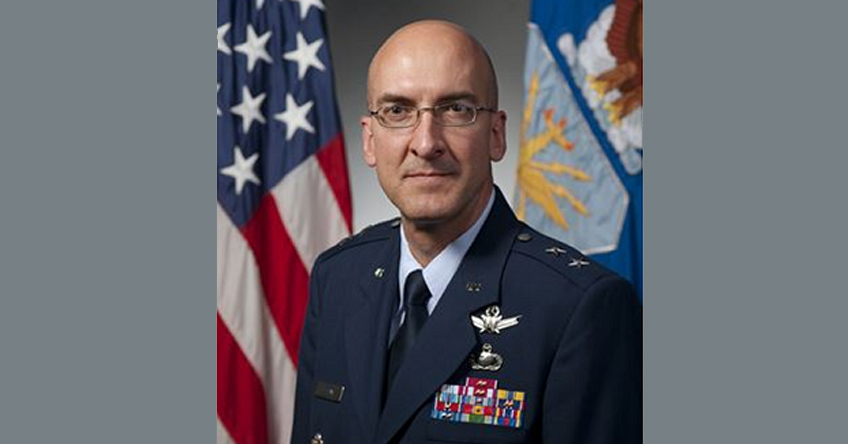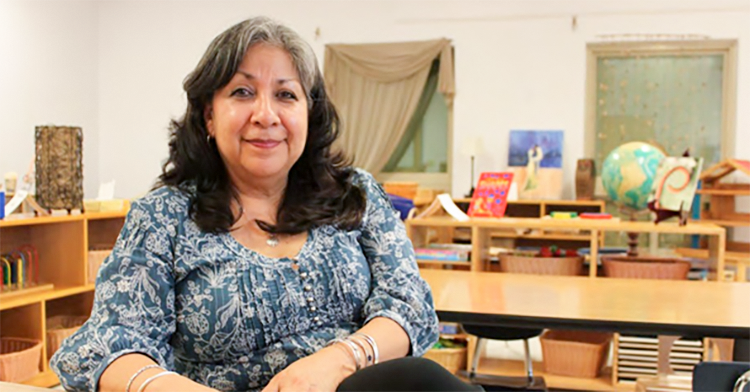
Babies, toddlers and preschoolers learn and grow through their relationships with the caring adults in their lives – including child care professionals. So it makes sense that helping young kids be ready for success means also helping their teachers build the skills and knowledge needed to be the best teachers they can be.
Over the last decade, funding provided by First Things First to do this by providing early childhood educators with in-depth professional development that allows them to earn college credit and work toward degrees in early childhood has blossomed into 17 Communities of Practice across southern Arizona. These Communities of Practice focus on various topics critical to early learning – including examples such as promoting emergent literacy and language in family childcare homes and improving inclusion and advocacy in public preschools.
The United Way of Tucson and Southern Arizona administers the program, which is called Great Expectations for Teachers, Children, and Families. It provides early childhood teachers, principals and administrators access to professional development that improves their knowledge of the development and learning of children birth to age 5.
The initiative started a decade ago with classes at Pima Community College for those interested in earning an associate degree in early childhood education and eventually expanded to the University of Arizona for those seeking their bachelor’s and master’s degrees. The six initial Communities of Practice launched with about 20 members each, and addressed topics including infant and toddler practice, inclusion, language and literacy, developmentally appropriate practice, culture and diversity and instructional support.
Degrees earned continues to rise
Over the years, the number of students who have earned degrees from Pima Community College has more than doubled. In May 2009, before the grant began, 22 students at Pima College earned associate degrees in early childhood education. The numbers have risen every year. In May 2017, 47 degrees were awarded in early childhood education.
Eventually, a master’s degree program in early childhood education was created at the University of Arizona’s College of Education. The planning and building processes began in September 2009, and the first master’s degree class enrolled in September 2011. From 2011 through 2017, a total of 19 students were awarded master’s degrees. In 2018, 19 students were enrolled in early childhood graduate degree programs, 11 in the master’s program and eight in the doctoral program.
By 2018, there were 17 Communities of Practice, including ones in Cochise County, the Vail School District, Green Valley and the Pascua Yaqui Tribal Community. In 2018, there were 530 members in the Communities of Practice.
Over the next few weeks, we’ll be sharing stories from some of the early child professionals who have benefited from the Great Expectations program. You’ll hear firsthand how the program helped them elevate their teaching while earning college degrees in early childhood education.
ESTHER LEYVA-MCGEE
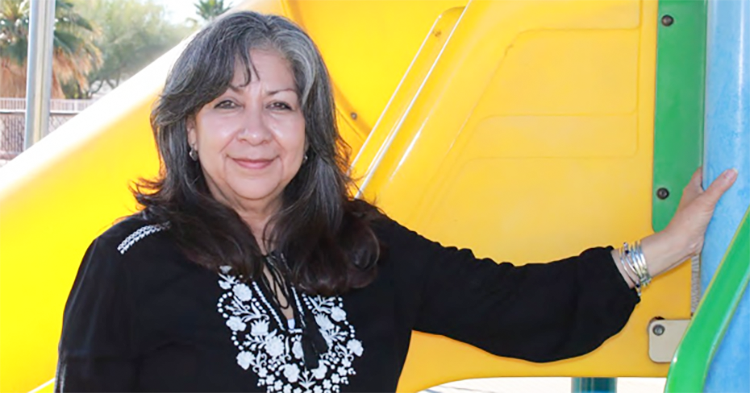
As an early childhood educator for nearly three decades, Esther Leyva-McGee is deeply embedded in a profession that truly feeds her soul.
Leyva-McGee rose up through the ranks at Head Start Child-Parent Centers, helping prepare children to soar in kindergarten and beyond as a home visitor, classroom teacher, center manager and, currently, as an education specialist in her hometown of Tucson.
Through all of her success, Leyva-McGee often thought about returning to college to complete a degree in early childhood education. As a child, school had never been engaging for Leyva-McGee, and she left college after three semesters to start her career. She had taken classes over the years, but her degree was never in reach.
A government mandate in 2007 requiring college degrees for Head Start teachers and education specialists put those wheels in motion for Leyva-McGee. She and some of her colleagues, many of whom hadn’t been in school for decades, were required to complete bachelor’s degrees in early childhood education by 2015.
With passion, determination and drive, Leyva-McGee enrolled at Pima Community College. She was enthralled by her early childhood courses, but was overwhelmed by the one hurdle she feared might keep her from ever becoming a college graduate – math.
“I hadn’t taken math in 20 years,” Leyva-McGee recalled. “My anxiety with math was physical. I’d get sick to my stomach. I was terrified of taking tests. People would start to finish their tests and I would go blank.”
Leyva-McGee dropped out of her first developmental math class after her teacher told the class that if they did not understand the review, they would very likely fail. If she couldn’t pass the math, Leyva-McGee knew her position as an education specialist at Head Start was in jeopardy.
“I had to pass the required math to earn my degree or face demotion,” Leyva-McGee said.
Overcoming a lifelong fear of math
Then Leyva-McGee heard about ENLACE. This Spanish word for interconnected is an acronym for Educate, Nurture, Lead, Advocate, Communicate, Envision. It was the name of the Community of Practice being launched at Pima Community College through United Way of Tucson and Southern Arizona’s Great Expectations for Teachers, Children, and Families funded by a grant from First Things First.
The goal of ENLACE, now in its ninth year, is to facilitate degree completion for early childhood educators. ENLACE provides embedded math coaches in math courses only open to early childhood students at Pima College. Data show an increase in the success rate among students in math classes who worked together as early childhood educators and with the support of their ENLACE coaches.
“In 2010, I heard about a special math cohort that was starting up to help early childhood students complete the math requirements,” said Leyva-McGee, who was part of the first cohort. “I never could have done it without the support of ENLACE.”
She scheduled a meeting with Shanna Kukla, program manager of the Center for Early Childhood Studies, who developed and implemented the ENLACE Community of Practice after several years of hearing from students that the math requirement was a significant barrier to their completion of an early childhood degree.
“Through her support and mentorship, I gathered up my courage and enrolled in the class,” Leyva-McGee said. “I knew instantly that it was a very different approach. It felt familiar and inviting. By familiar I mean math instruction through the constructivist approach, hands-on, active engagement, the feeling of a learning community and relationship building – all elements that I was used to in my work as an early childhood educator.”
Lifting people up through ENLACE
“When I met Esther, I would describe her as having an experience in math learning that very much cemented for her the fact that she believed she didn’t have a math brain,” Kukla said. “One of the things that she learned and I learned beside her was that this was a misunderstanding that she had about herself. It was really mediated through the experience of ENLACE.”
Leyva-McGee learned to trust the program and herself, Kukla said.
“Most students at Pima are members of the workforce so they have these two competing identities,” Kukla said. “The one is math learner, where they feel vulnerable and incapable, and then you contrast that with their day job, where they are in charge of a classroom of young children, or coaching and professional development for an entire program. It’s a very big shift.”
This first cohort took four math classes together – three developmental classes and one college math class. Many of them, including Leyva-McGee, stayed on to take additional classes needed for transfer to a bachelor’s degree with teacher certification.
“Esther is someone who, once she started learning math this way, she just didn’t want to stop learning. She went from hating math to loving math – she became a math master,” Kukla said.
That first cohort was critical in the development of ENLACE.
“We really sought to understand the key elements to this model, and how we could scale it up and make it accessible for more people,” Kukla said. “Esther and this first cohort taught us that. This model focused on relationships and solidified what we know about learning – learning is social and is situated in relationships that are sustained over time.”
Across the nation, the pass rate for developmental math classes is about 50 percent, Kukla said. The lowest pass rate in the pilot ENLACE math classes was 75 percent, according to one study. For some courses, the pass rate was 100 percent.
“Some of these students are passing math for the first time in their lives, and they are now successful math learners,” Kukla said.
Leyva-McGee went on to receive her associate degree in early childhood studies with honors from Pima and earned her bachelor’s degree in early childhood education, graduating Magna Cum Laude from the University of Arizona. She is completing a master’s degree in educational leadership, with a minor in children’s literature from Northern Arizona University.
Incorporating math in creative ways
As an education specialist for Head Start Child-Parent Centers, Leyva-McGee coaches and supports Head Start teachers in their work with children, curriculum development. For Leyva-McGee, this also includes ways to incorporate math concepts and experiences throughout the daily routine in creative and meaningful ways.
“What I love about my job is that I can really help prepare the children for school and beyond – including STEM subjects, which have become my passion. I can help set the foundation to make sure children are prepared for successful college and career paths.”
The educator who once became physically ill over the thought of math tests decided to face the challenge head-on, taking extra math classes just for fun, and tutoring other early childhood students.
“Don’t get me wrong – the math was still hard for me,” she said. “But I was in a learning community that was safe. I could make mistakes and learn from them. ENLACE was a perfect environment for me.”
Excerpted from Great Expectations Realized, a publication from United Way of Tucson and Southern Arizona and First Things First.


